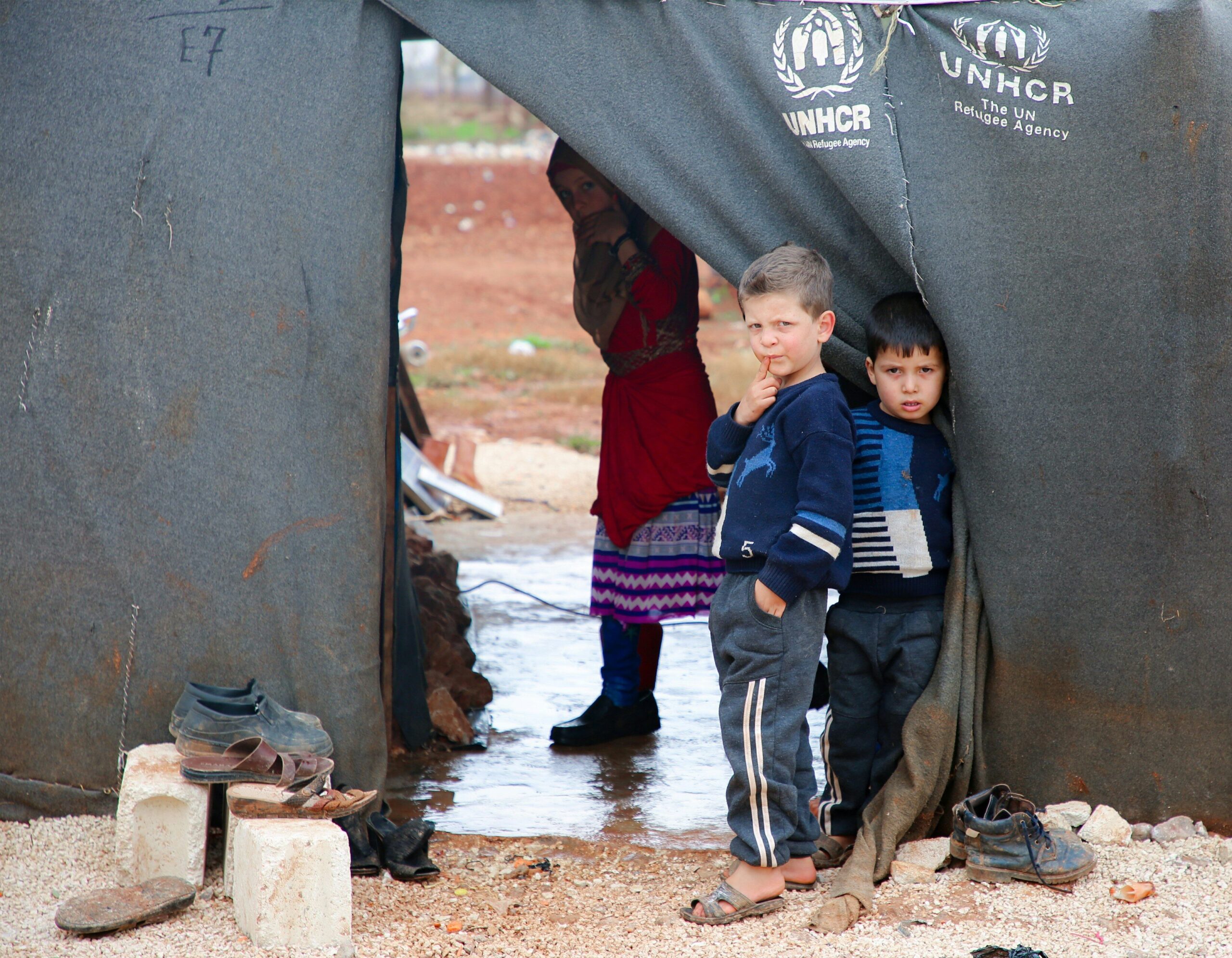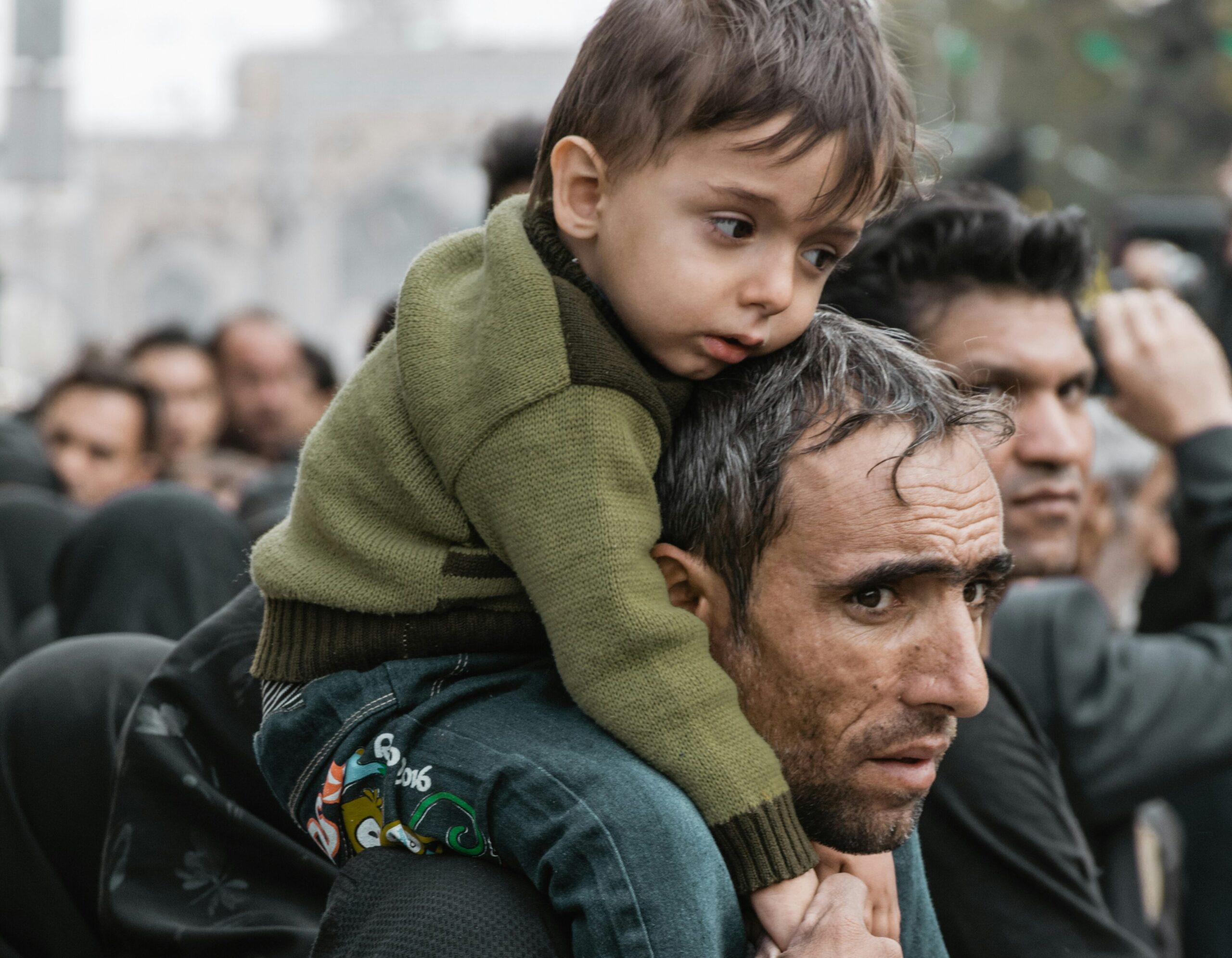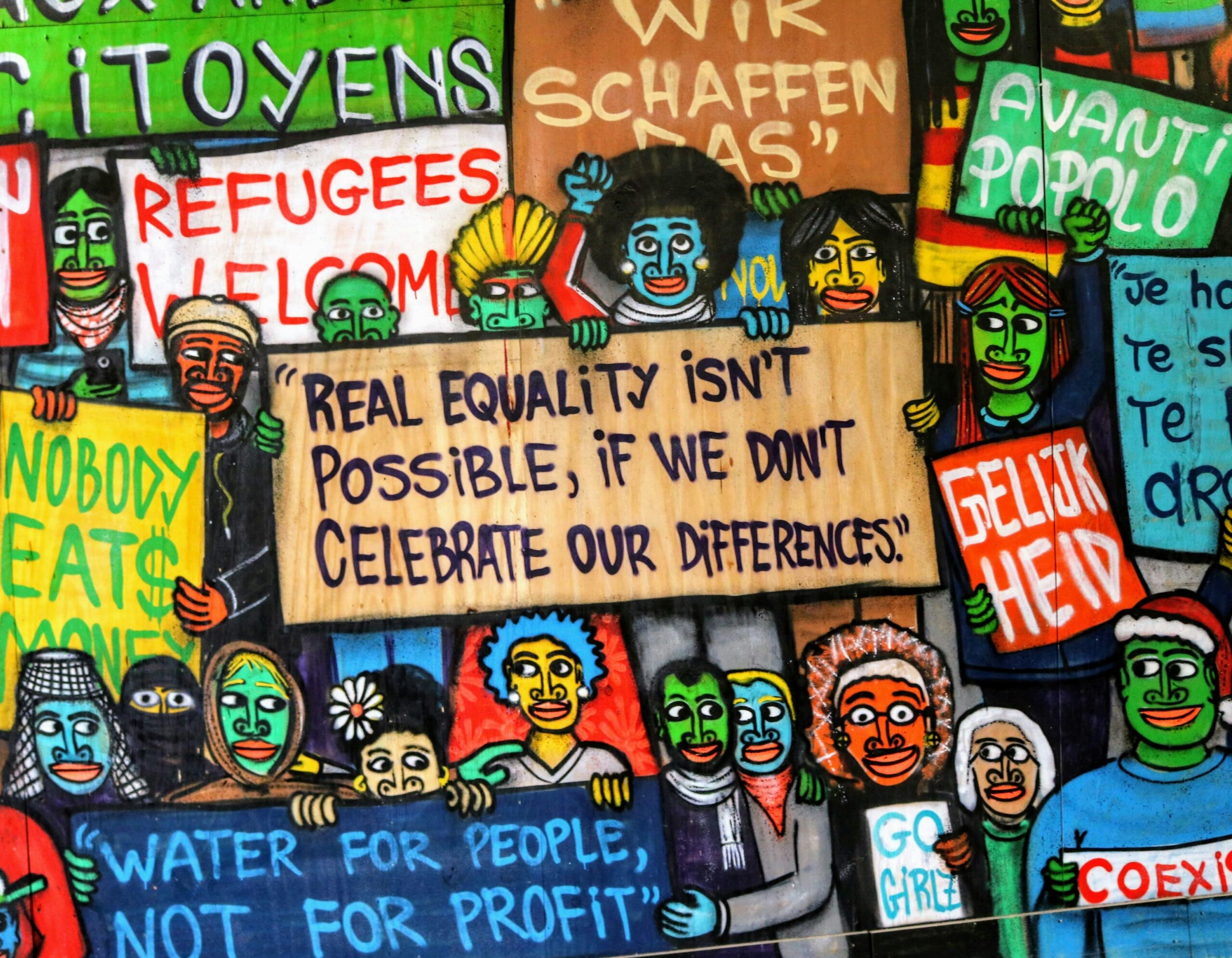We look ahead to this year’s Refugee Week (16–22 June) with the first of two reflections by Inderjit Bhogal, taken from our 2024 Lent book Loving My Neighbour.
8 June 2025
Introduction
Inderjit came to the UK, aged eleven, with his parents in 1964, and he felt very much an outsider, a stranger and alone. He has worked all his life for justice, overcoming racism, exclusion and discrimination. He writes:
My passion for justice for ‘the stranger’ created the Sheffield City of Sanctuary and Church of Sanctuary vision and network, building cultures of welcome, hospitality and safety, for the integration of all people, especially those whose lives are most in danger: victims of human trafficking, refugees and asylum seekers.
Around 40 times, in different terms, the Hebrew scriptures hold up the challenge to ‘love the stranger’. There is no other ethical requirement repeated so often. Jesus’ good Samaritan reveals exemplary values in a stranger.
Jesus and the good Samaritan
Jesus replied, ‘A man was going down from Jerusalem to Jericho and fell into the hands of robbers, who stripped him, beat him, and took off, leaving him half dead. Now by chance a priest was going down that road, and when he saw him he passed by on the other side. So likewise a Levite, when he came to the place and saw him, passed by on the other side. But a Samaritan while travelling came upon him, and when he saw him he was moved with compassion. He went to him and bandaged his wounds, treating them with oil and wine. Then he put him on his own animal, brought him to an inn, and took care of him. The next day he took out two denarii, gave them to the innkeeper, and said, “Take care of him, and when I come back I will repay you whatever more you spend.”’
Luke 10:30–35 (NRSV)
In the wisdom of Jesus, eternal life is grounded in acts of mercy. In answer to the question, ‘What must I do to inherit eternal life?’ (Luke 10:25), Jesus tells a story in which he illustrates how a complete stranger, a Samaritan, fulfilled the command to love the neighbour, and instructed his learned enquirer to ‘go and do likewise’ (Luke 10:37).
New Testament writings often use extremes to make a point. For example, in Galatians 3:28, extreme distinctions in human existence are used to affirm that with our immense diversity we are ‘one in Christ’. In the story of the good Samaritan we note Jesus using this method. He contrasts those who may be expected to act kindly but don’t with one from whom nothing good can be expected, a Samaritan, who shows kindness and care.

Love the stranger: there is no other ethical requirement repeated so often.
The temptation to look away
It is often a temptation to look away when the news presents an awful tragedy that befalls already vilified people; for example, when another boat full of desperate refugees capsizes in the Mediterranean Sea. Many bereaved people speak of how even their friends cross the road to avoid them, having seen them, pretending not to have seen, when a little company would be kind.
Jesus’ story presents a man who also is on a difficult journey, along a challenging stretch of road, and is mugged and robbed, left needing rescue. Two respected people, a priest and a Levite, saw the wounded man and ‘passed by on the other side’ (Luke 10:31–32). However, a Samaritan man also came along. He is a representative of people with whom ‘Jews do not share things in common’ (John 4:9), people who were not liked. When he saw the hurting traveller, he crossed the road towards him and took care of him – he treated his wounds, took him to a place where he could receive further care and covered the cost of his treatment. The Samaritan goes the extra mile, beyond the call of duty.

It is often a temptation to look away when the news presents an awful tragedy that befalls already vilified people.
Seeing beyond stereotypes
In Jesus’ time there was a stereotypical image of Samaritans: a different, despised people. Nothing good would be expected from them, certainly not exceptional kindness. A Samaritan is the example used by Jesus when he wants to point to that which is essential in good faith and kindness, and what is essential for salvation and eternal life.
Jesus’ story is not an attempt to single out one Samaritan as good. This often happens in everyday life. I’ve felt singled out sometimes, in predominantly white communities and congregations who know me, as one who is all right, while others like me are looked upon with suspicion and even hatred. Jesus is not doing this. He is simply using an extreme example to make an important point.
A key element in Jesus’ story is that someone actually crossed over to the hurting figure and ‘saw’ him, and this is what took the Samaritan to another level, to respond with care and commitment. It would have been easier to look away, pass by ‘on the other side’ or toss a few coins as an expression of sympathy. He could have thought, perhaps like the others who passed by, I don’t have time, I don’t have the skills to assist, I won’t know what to say, my actions could be misinterpreted.

Jesus’ story is not an attempt to single out one Samaritan as good. He is simply using an extreme example to make an important point.
An act of solidarity
The actions of the Samaritan are more than sympathy; they become an act of solidarity. Care deepens in a relationship of mutuality, a giving and receiving. It was a two-way process here because the very act of solidarity drew the Samaritan to his own humanity and hospitality, transcending any historical or theological hostility.
What stops kindness and hospitality from being patronising, a one-way exercise of privilege and power? The word translated ‘compassion’ in verse 33 could also be translated as ‘anger’: anger that a vulnerable person on a dangerous journey could be further harmed, left to die. This transforms the power of pity into the humility of empathy. The word translated ‘mercy’ (v. 37) then takes us to another level of depth. It is the same word used in Luke 1:54, 58, 72, where it is a recognised quality of God. Anger at injustice and compassion is the substance of solidarity, overcoming individuality and selfishness. Acting in such solidarity, our humanity, faith and spirituality is restored as a gift, inspiring in us our best intentions. We go beyond superiority and inferiority concepts. All are made in the image of God. There is a mutual benefit.

The actions of the Samaritan are more than sympathy; they become an act of solidarity.
Mercy, the embodiment of holiness
The word ‘mercy’ is close to the term ‘compassion’. In Jesus’ understanding, the Hebrew word for compassion refers to a feeling in the depths of your guts or heart. Mercy is the embodiment of holiness, a divine quality. This is the quality of holiness that the lawyer recognised in the Samaritan. Jesus said: go and show such mercy. For Jesus, this is what it means to love God and to love your neighbour as yourself. Inheriting eternal life is a gift of God, but it is also a tough call, to show mercy to those you may want to turn away from.
Who in your community is misrepresented and negatively portrayed? People you hate are capable of mercy and love. Find good stories about them. Can you imitate their kindness? Jesus is not only saying be a good Samaritan; he is also saying accept the fact that a Samaritan is your neighbour too. We are to move beyond stereotypes; to be the good Samaritans ourselves and to be open to receive mercy from the least likely quarters. As the title of this year’s Refugee Week puts it, ‘community is a superpower.’




